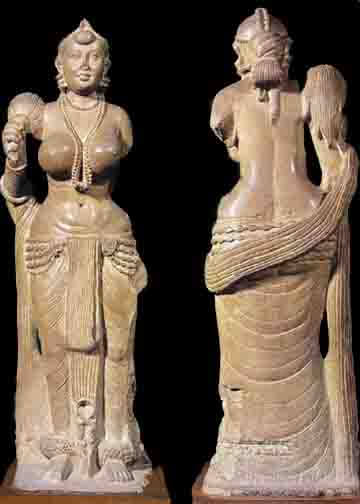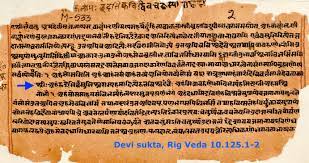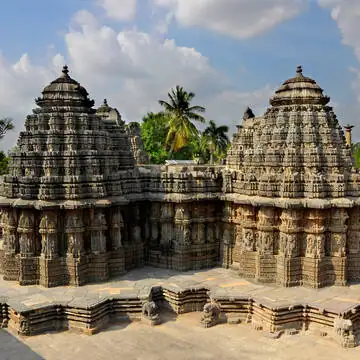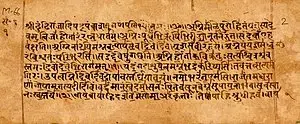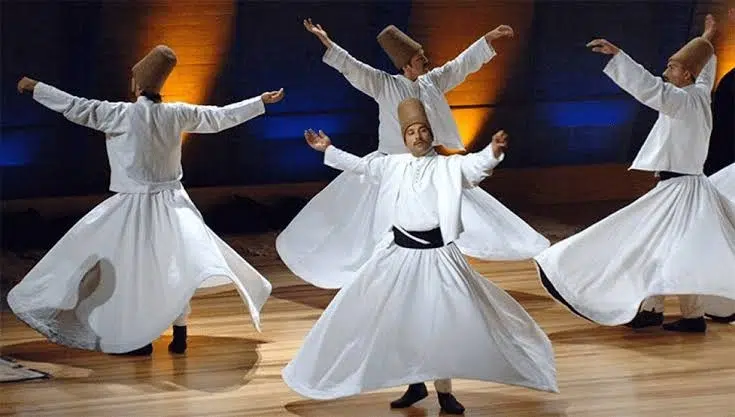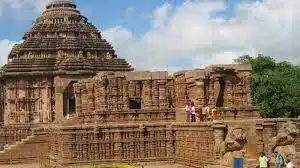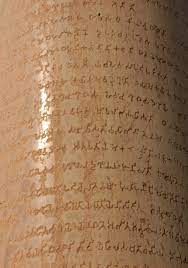Philosophy in Medieval India
Medieval India saw the rise of the Bhakti and the Sufi movements and along with it, a big churn in the way people viewed God and religion. For instance, a lasting effect of the movement is the importance of devotion to God (bhakti) as the way towards salvation.
Bhakti saints like Vallabhacharya, Ramanuja, Nimbaraka brought about new philosophical thinking which had its origin in Shankaracharya’s advaita (non-dualism) philosophy.
Top 7 Philosophers in Medieval India
Shankaracharya (Adi Shankara)
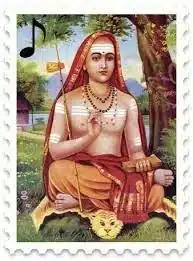
- Born in Kaladi, Kerala in 788 CE.
- Propounded the Doctrine of Advaita (Monism).
- He wrote many commentaries on the Vedic canon (Upanishads, Brahma Sutras and Bhagavad Gita) in Sanskrit.
- His major work is Brahmasutrabhasya (Bhashya or commentary on the Brahma Sutra).
- His most famous stotra is Bhajagovinda Stotra. He also composed the Nirvana Shatakam.
- He travelled the length and breadth of India spreading Advaita Vedanta.
- He was responsible for reviving Hinduism in India to a great extent when Buddhism was gaining popularity.
- He was a devotee of Shiva.
- He criticised the Mimamsa School of philosophy and explained a major point of deviance between Hinduism and Buddhism. While Buddhism asserts that there is ‘no Soul, no Self’; Hinduism, according to Adi Shankara, says that ‘Atman (Soul, Self) exists’.
- The basic theme of Advaita is that the one unchanging entity (Brahman) alone is real while changing entities do not have absolute existence. The world is Maya or illusion and only the Self is real. A person who realises this attains moksha (liberation of the soul).
- The doctrine says that there is no difference between the Atman and the Brahman. The individual soul is not different from Brahman. Hence, its name Advaita meaning non-duality.
- Shankaracharya established four Mathas in the four corners of India and the tradition continues to this day.
- He preached renunciation and adoption of the knowledge path to realise Brahman.
Ramanujacharya
- Born in 1017 in Sriperumbudur, Tamil Nadu.
- He propounded Vishishtadvaita (modified monism).
- He said that the ultimate reality is Brahman and that the soul and matter are his qualities.
- According to him, even after merging with Brahman, the Atman remains distinct.
- He expounded the grace of God as more important than knowledge.
Madhavacharya
- Born in 1238 near Udupi, Karnataka.
- Composed many works including the famous Anuvyakhyana, a philosophical supplement to his commentary on the Brahma Sutras.
- He wrote in Sanskrit.
- He propounded the Dvaita philosophy (dualism).
- According to him, the world is not an illusion and there is a difference between the Atman (soul, self) and Brahman (ultimate reality).
- He was a critic of Shankara and Ramanuja.
- He stressed that liberation is attainable only through the grace of God.
- He founded the Krishna Mutt at Udupi.
- He influenced the Bhakti movement of Vaishnavism in northern India.
Nimbarka
- He propounded Dvaitadvaita (dualistic monism).
- The sect of Nimbarka flourished in east India in the 13th and 14th centuries.
- Nimbarka was born in south India. The exact time period of his birth is not clear.
- He emphasised on Radha Krishna worship as the means to attain liberation.
- He stressed on Bhakti Yoga.
- Said that the soul and the world are different from God but dependent on God.
Srikanthacharya
- Propounded Sivadvaita.
- He said that Shiva is the ultimate reality or Brahman and that it is endowed with Shakti.
- Shiva exists both in and beyond this world.
Vallabhacharya
- He was a Telugu philosopher who founded the Pushti sect of Vaishnavism.
- It was a Krishna-centric cult in the Braj region of India.
- He propounded Shuddha Advaita (pure non-dualism).
- He wrote commentaries on Vedanta Sutra and the Bhagavad Gita.
- He said that Krishna was Brahman and that the soul and God are one and the same.
Basavanna
- Born in Vijaypura District, Karnataka in 1105.
- He was a social reformer also.
- He composed the Vachanas.
- He rejected superstitions and rituals and also advocated gender and class equality.
- He is considered to be the founder of the Lingayat sect.
- He was also the Chief Minister of Bijjala, a Kalachuri king.
- He used the state treasury to initiate social reforms and religious movement focussed on reviving Shaivism.
- He developed a new devotional movement known as the Virashaivas.
- Basavanna rejected temple and ritualistic worship led by Brahmins and emphasised on personalised worship towards God.
- Instead of Sanskrit, he championed the use of the local language Kannada.
- He stressed that every human being is equal irrespective of gender or caste.
Also refer:

